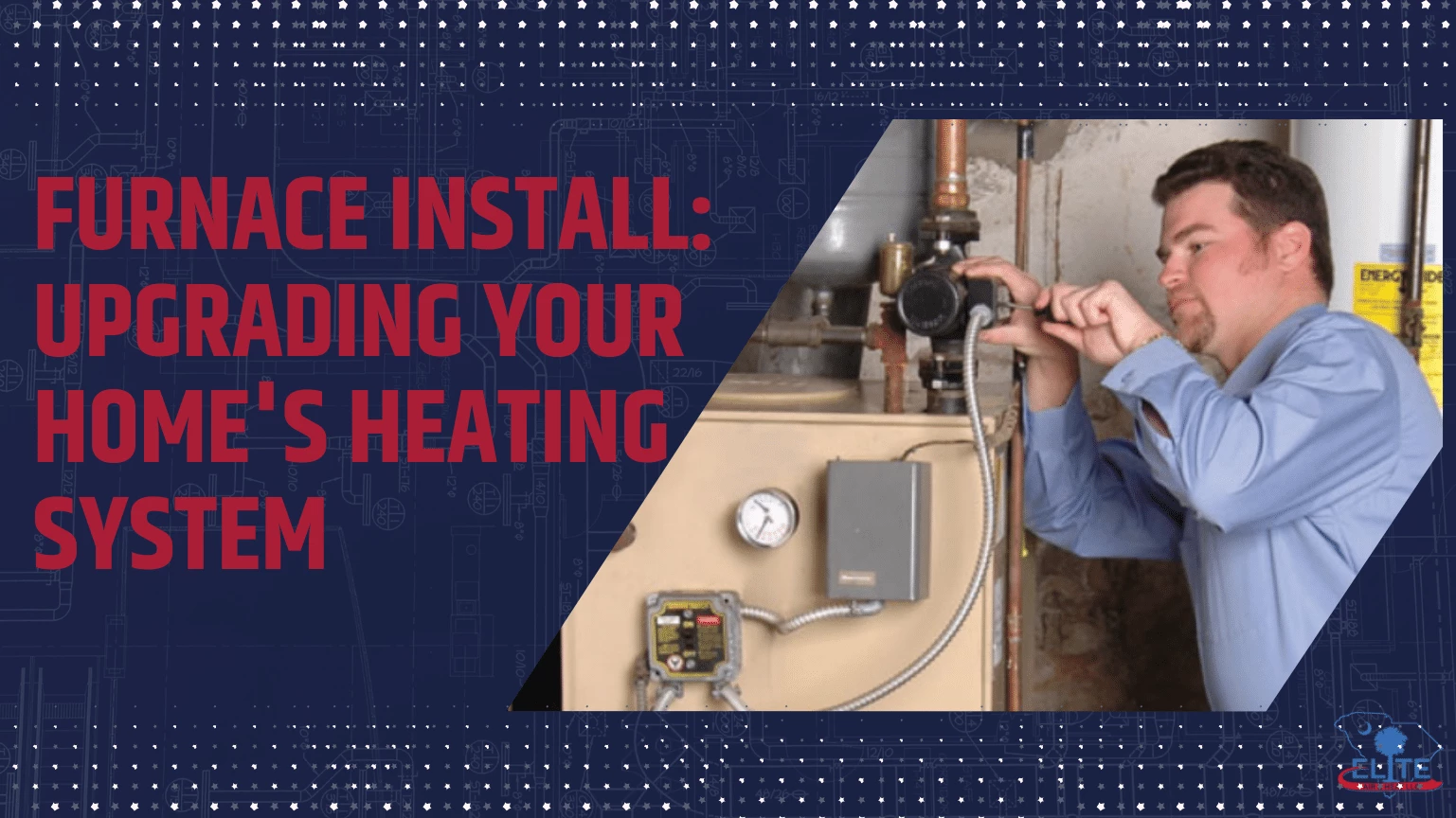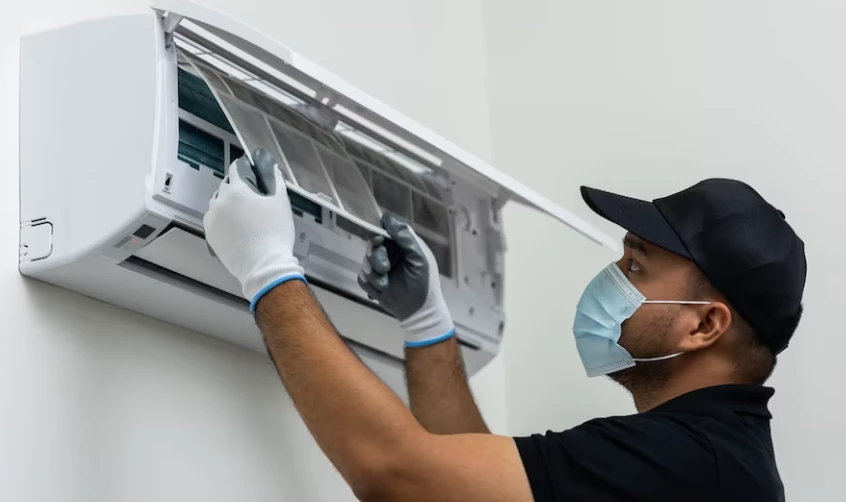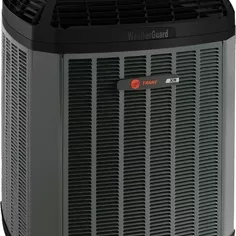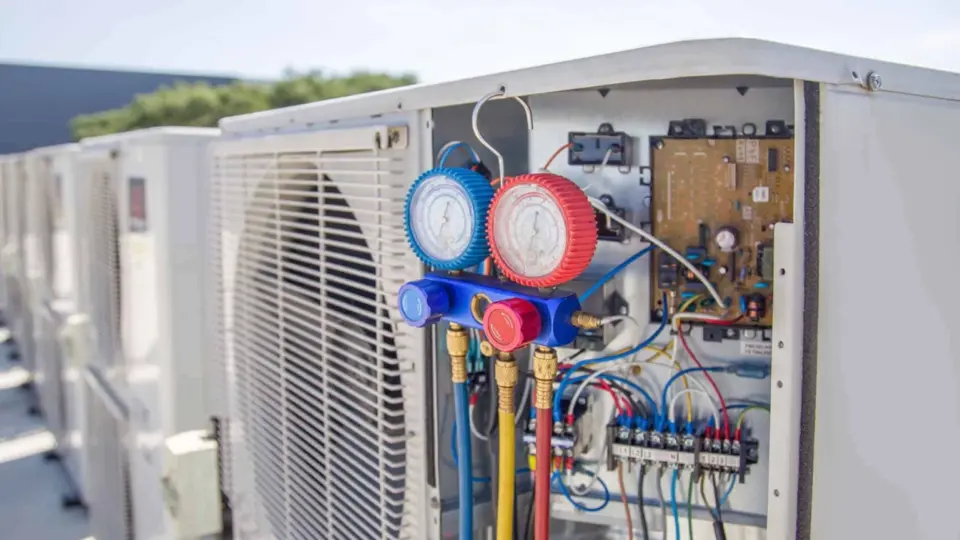Planning to install a new furnace? If you’re thinking about installing a new furnace in your home, there are some important things to consider before making any decisions. With so many options available on the market today, it can be overwhelming to choose the right furnace for your specific needs.
Replacing your home’s aging furnace with a new, energy-efficient model is a move that promises comfort, cost savings, and energy conservation. Modern furnaces are more effective in uniformly heating living spaces and have improved features such as programmable thermostats and variable-speed blowers.
In this guide, we’ll explore the key factors to keep in mind when planning for a new furnace installation.
What are the key factors when upgrading a home’s heating system with a new furnace installation?
Deciding to upgrade a home’s heating system with a new furnace installation is a significant decision that involves careful evaluation of various critical factors:
- Energy Efficiency: Evaluate the energy efficiency of the new furnace. Look for models with high Annual Fuel Utilization Efficiency (AFUE) ratings, indicating more excellent fuel conversion to heat efficiency. Energy-efficient furnaces can help lower utility bills and reduce environmental impact.
- Heating Capacity: Consider the heating capacity of the furnace relative to the size and heating requirements of your home. A furnace that’s too small may need help to adequately heat the space, while one that’s too large may cycle on and off frequently, leading to inefficiency and uneven heating.
- Fuel Type: Choose a furnace that utilizes a fuel type readily available and affordable in your area. Standard options include natural gas, propane, oil, and electricity. Before deciding, compare the cost, availability, and environmental impact of different fuel sources.
- System Compatibility: Ensure compatibility with existing heating infrastructure, including ductwork, thermostats, and ventilation systems. Upgrading to a new furnace may require modifications or additions to accommodate the latest equipment.
- Cost and Budget: Consider the upfront cost of purchasing and installing a new furnace and any potential long-term savings in energy costs. Evaluate financing options, rebates, and incentives for energy-efficient furnace installations to make the investment more affordable.
- Reliability and Warranty: Choose a reputable furnace brand known for reliability and durability. Review the manufacturer’s warranty to understand coverage for parts and labor and any conditions or limitations that may apply.
- Noise Level: Consider the noise level of the furnace during operation, mainly if it’s located in a living space or near bedrooms. Look for models with features designed to minimize noise, such as insulated cabinets and variable-speed blowers.
- Intelligent Features: Explore options for smart thermostats and other features that offer greater control and energy savings. Wi-Fi-enabled thermostats, zoning systems, and programmable settings can optimize comfort and efficiency.
- Professional Installation: Hire a licensed HVAC contractor with experience in furnace installation. Professional installation ensures proper sizing, configuration, and setup, maximizing the performance and longevity of the new furnace.
- Safety Considerations: Prioritize safety features such as automatic shut-off valves, pressure switches, and carbon monoxide detectors to protect against potential hazards associated with furnace operation.
By carefully considering these factors, homeowners can make informed decisions when upgrading their home’s heating system with a new furnace installation, ensuring optimal comfort, efficiency, and reliability for years.
How does the choice of furnace type and size impact the efficiency and heating capacity of a home’s heating system?
The choice of furnace type and size has a significant impact on both the efficiency and heating capacity of a home’s heating system:
Furnace Type
- Gas Furnace: Gas furnaces are the most common type, fueled by natural gas or propane. They typically offer high efficiency and cost-effectiveness, especially in regions with access to affordable natural gas.
- Electric Furnace: Electric furnaces are another option, relying on electricity for heating. While they can be efficient, electricity tends to be more expensive than gas, making electric furnaces less cost-effective in some areas.
- Oil Furnace: Oil furnaces use heating oil as fuel and are common in regions without access to natural gas. While they can provide efficient heating, oil furnaces require regular maintenance and may be subject to fluctuating oil prices.
Efficiency
- An annual fuel utilization efficiency (AFUE) rating, which shows the proportion of fuel turned into heat, is a common way to evaluate a furnace’s performance. Higher AFUE ratings signify greater efficiency, meaning more heat is produced for every unit of fuel consumed.
- Gas furnaces generally have higher AFUE ratings compared to electric or oil furnaces. However, technological advancements have improved efficiency for all types of furnaces.
- Proper maintenance, such as regular filter changes and annual inspections, is essential for maintaining furnace efficiency over time.
Heating Capacity:
- A furnace’s heating capacity is measured in British Thermal Units (BTUs) per hour and refers to the amount of heat it can produce.
- Choosing the right size furnace is crucial for ensuring adequate heating capacity without unnecessary energy waste. An undersized furnace may struggle to heat the home effectively, leading to discomfort and increased energy consumption as it runs continuously to meet demand.
- Conversely, an oversized furnace may cycle on and off frequently, leading to inefficient operation, uneven heating, and increased wear and tear on the system.
- Factors influencing furnace size requirements include the size and layout of the home, insulation levels, local climate conditions, and the presence of other heating sources or energy-efficient features.
Selecting the appropriate furnace type and size is essential for optimizing the efficiency and heating capacity of a home’s heating system. By considering factors such as fuel availability, efficiency ratings, heating requirements, and professional guidance, homeowners can choose a furnace that meets their heating needs effectively while maximizing energy savings and comfort.
Are there specific furnace installation professionals or services recommended for ensuring a successful upgrade in heating systems?
Specific furnace installation professionals or services are recommended to ensure a successful upgrade in heating systems. Here are some options to consider:
- Licensed HVAC Contractors: Hiring a licensed Heating, Ventilation, and Air Conditioning (HVAC) contractor is crucial for a successful furnace installation. These professionals have the necessary expertise, training, and certifications to install, repair, and maintain heating systems safely and effectively. Look for contractors with a good reputation, positive customer reviews, and proper licensing and insurance.
- Manufacturer-Certified Installers: Some furnace manufacturers offer certification programs for HVAC technicians who undergo specialized equipment installation training. Choosing a manufacturer-certified installer ensures that the installation is performed according to the manufacturer’s specifications, which can help maintain warranties and ensure optimal performance.
- Local HVAC Companies: Local HVAC companies often have a strong understanding of the climate, building codes, and regulations in your area. They can provide personalized recommendations based on your specific heating needs and budget. Look for established companies with a track record of quality artistry and customer satisfaction.
- Referrals and Recommendations: Ask friends, family, and neighbors for referrals to reputable HVAC contractors or companies they have used and trust. Personal recommendations can provide valuable insights into the quality of service, professionalism, and reliability of potential installers.
- Online Directories and Reviews: Utilize online directories and review platforms to research HVAC contractors in your area. Check for certifications, licenses, accreditations, customer reviews, and ratings. Websites like Angie’s List, Yelp, and the Better Business Bureau can help you find reputable professionals.
- Consultation and Estimates: Schedule consultations with multiple HVAC contractors to discuss your heating needs, assess your home’s heating system, and receive detailed estimates for the installation. Compare pricing, services offered, and warranties to make an informed decision.
- Energy Efficiency Programs: Some utility companies and government agencies offer energy efficiency programs and incentives for upgrading heating systems. These programs may provide resources, rebates, or discounts for installing energy-efficient furnaces through approved contractors. Check with your local utility provider or energy efficiency program for available opportunities.
By carefully selecting a qualified and reputable furnace installation professional or service, homeowners can ensure a successful upgrade in their heating systems, maximizing comfort, efficiency, and reliability in their homes.
What are the potential energy-saving benefits of a new furnace installation, and how can homeowners maximize these savings?
A new furnace installation can offer several potential energy-saving benefits for homeowners, including:
- Improved Efficiency: Newer furnaces are typically more energy-efficient than older models, especially if the existing furnace is outdated or in poor condition. Modern furnaces are designed with advanced technologies, such as variable-speed blowers, electronic ignition systems, and improved heat exchangers, to maximize efficiency and reduce energy waste.
- Higher AFUE Ratings: Furnaces are rated by their Annual Fuel Utilization Efficiency (AFUE), which measures the percentage of fuel converted into usable heat. New furnaces often have higher AFUE ratings, meaning they can produce more heat for every unit of fuel consumed, resulting in lower energy bills.
- Zoning and Programmable Thermostats: Installing zoning systems and thermostats allows homeowners to control heating zones independently and schedule temperature adjustments based on occupancy patterns. This helps optimize comfort levels and reduce energy usage by heating only occupied areas when needed.
- Proper Sizing and Installation: Ensuring a qualified HVAC professional appropriately sized and installed the new furnace is essential for maximizing energy savings. An oversized or undersized furnace can lead to inefficient operation, increased energy consumption, and discomfort. Proper ductwork design and insulation also play a crucial role in optimizing heating efficiency.
- Regular Maintenance: Cleaning or replacing the air filter is one example of routine maintenance lubricating moving parts, and inspecting the furnace for any issues, contributes to the system’s continuous efficient operation. Neglected furnaces can become inefficient, leading to higher energy bills and potential breakdowns.
- Sealing and Insulating Ducts: Leaky ductwork can result in significant energy losses by allowing heated air to escape into unconditioned spaces. Sealing and insulating ducts help prevent air leaks and improve the heating system’s efficiency, reducing energy consumption and lowering utility bills.
- Energy-Efficient Features: Investing in energy-efficient features, such as high-efficiency air filters, condensing furnaces, and advanced thermostat controls, can further enhance energy savings and comfort levels in the home.
To maximize energy-saving benefits from a new furnace installation, homeowners should prioritize proper sizing, professional installation, regular maintenance, and energy-efficient upgrades. Consulting with an HVAC professional can provide tailored recommendations and guidance on optimizing heating efficiency for specific home and climate conditions.
Upgrade Your Heating System Today!
Don’t wait for the cold to creep in! At Elite Air & Heat, LLC, we keep your house warm while keeping your energy costs down. Upgrading to an efficient furnace system is not just about immediate comfort; it’s an investment in your home’s future. Our expert technicians are ready to consult with you, assess your needs, and provide energy-efficient solutions that make a difference.
Act now to upgrade your home heating system and experience the cozy difference a professionally installed, high-efficiency furnace makes. Contact Elite Air & Heat, LLC today—your comfort is our business!





